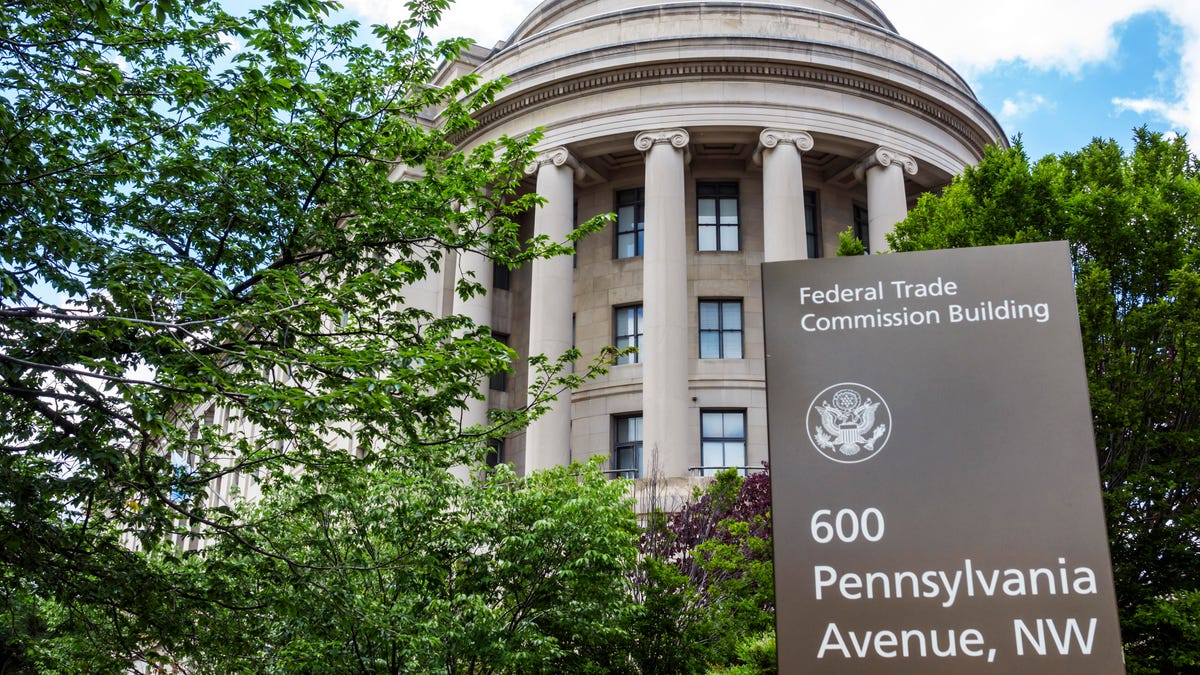FTC demands details from broadband companies on privacy practices
The agency asks the nation's largest broadband providers for specifics about what data they collect, who they share it with and whether consumers can opt out.

The Federal Trade Commission is looking into how the nation's largest broadband providers protect consumer privacy.
The Federal Trade Commission is demanding that the nation's largest broadband and wireless companies explain their privacy practices and how they monetize consumer data.
On Tuesday, the agency sent letters to seven companies, including AT&T, Comcast, Google Fiber, T-Mobile and Verizon, posing a series of questions about their data practices.
"The FTC is initiating this study to better understand internet service providers' privacy practices in light of the evolution of telecommunications companies into vertically integrated platforms that also provide advertising-supported content," the agency said in its letter.
Specifically, the FTC wants to know what kind of data the companies collect. It also wants to know whether that data is shared with third parties and how companies notify their consumers about the data collection. The FTC is also interested in whether consumers can opt out of having their data collected and, if they do decline, whether service is degraded or denied.
The letters come as lawmakers on Capitol Hill consider legislation that could put limits on how companies use customer data. Companies such as Facebook and Google have come under attack for how much data they collect and store about their users, and the potential privacy risks associated with these practices. Earlier this year, wireless companies faced scrutiny after reports by Motherboard showed they were sharing customer location data with third parties without the explicit consent of consumers.
Last week, FTC Chairman Joe Simons told Congress during an oversight hearing that the agency would use its authority to demand companies provide information about their data practices, according Bloomberg News. He didn't name the companies that would be examined.
The Federal Communications Commission under President Barack Obama passed privacy rules in October 2016 that would've required carriers to get explicit opt-in consent before using or selling subscribers' web-surfing and app-usage data that could be tapped by advertisers for targeted ads.
But when Republicans took control in 2017, they voted to repeal the rules. Critics of the FCC rules, which included the advertising industry and broadband carriers, argued that the opt-in requirement was too strict, since other internet companies, like Google and Facebook, weren't subjected to the same restrictions.
Privacy advocates say, though, that broadband and wireless companies are privy to a more comprehensive view of people's online activity, because they provide the underlying connection to the internet. What's more, since many Americans lack access to adequate competition, they have few or no options for internet service.
Absent the FCC's oversight of broadband and wireless companies, the FTC is the federal agency that's in charge of policing online privacy for broadband companies, as well as internet companies like Google and Facebook.
The FTC's oversight of broadband companies comes as a consequence of the FCC's repeal in late 2017 of Obama-era net neutrality protections. FCC Chairman Ajit Pai believes that the FTC -- and not the FCC -- should police privacy violations and other bad behavior from service providers.
"We welcome this step by the Federal Trade Commission to examine broadband providers' privacy practices," the FCC said in a statement. "It could not have occurred without the FCC's Restoring Internet Freedom Order, and the FTC's focus on the evolution of broadband providers into 'vertically integrated platforms that also provide advertising-supported content' highlights the advantages of having a single agency able to police the entire Internet ecosystem with respect to the important issue of privacy."
An AT&T spokeswoman acknowledged the FTC's inquiry and said the company takes its customers' privacy seriously. She also added that AT&T supports efforts to ensure consumers' data is protected and the FTC's role as the federal watchdog of internet privacy.
"We continue to support comprehensive federal legislation to protect consumers' data throughout the internet ecosystem," she said in a statement. "And the FTC is the logical agency to enforce that legislation."
Verizon confirmed it had received a letter from the FTC and also said it's reviewing it. The company declined to comment further.
Comcast, T-Mobile, and Google Fiber didn't immediately respond to a request for comment.
Updated 3:42 p.m. PT: This story was updated with comments from the FCC and AT&T.

